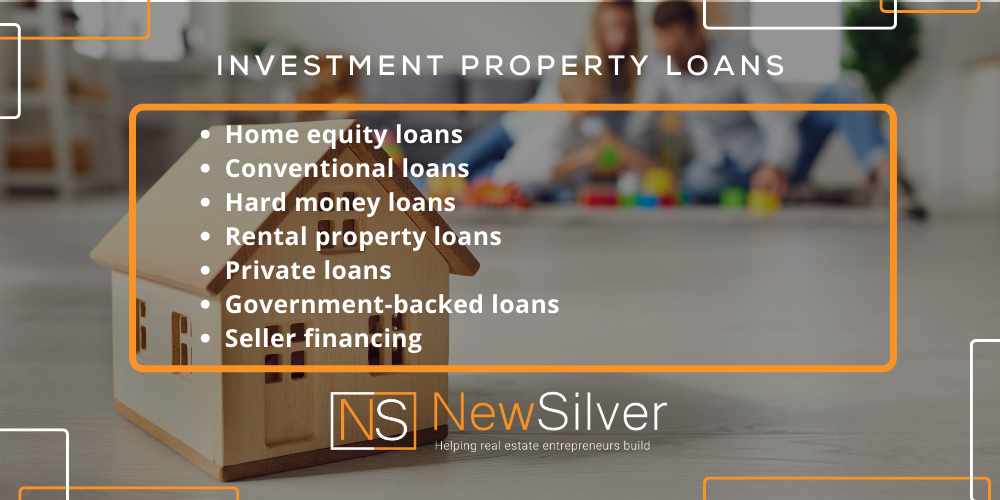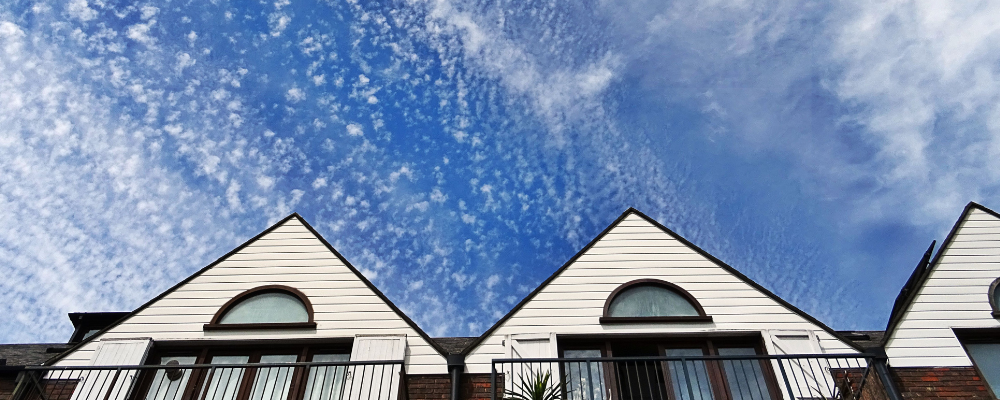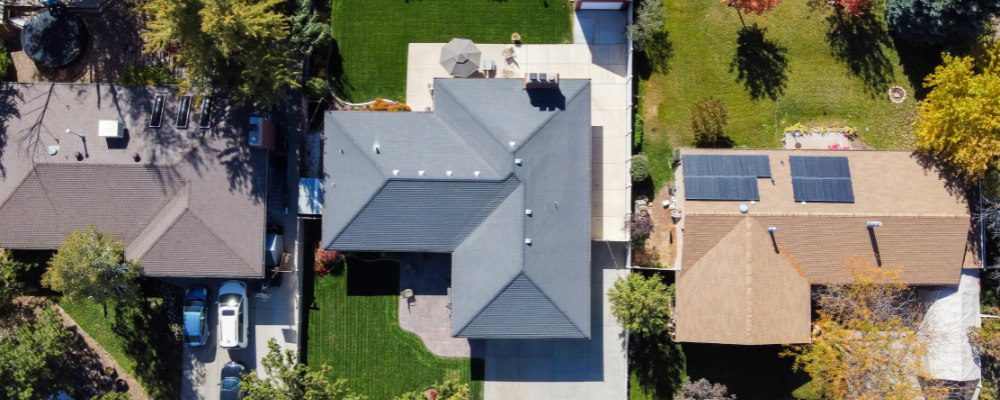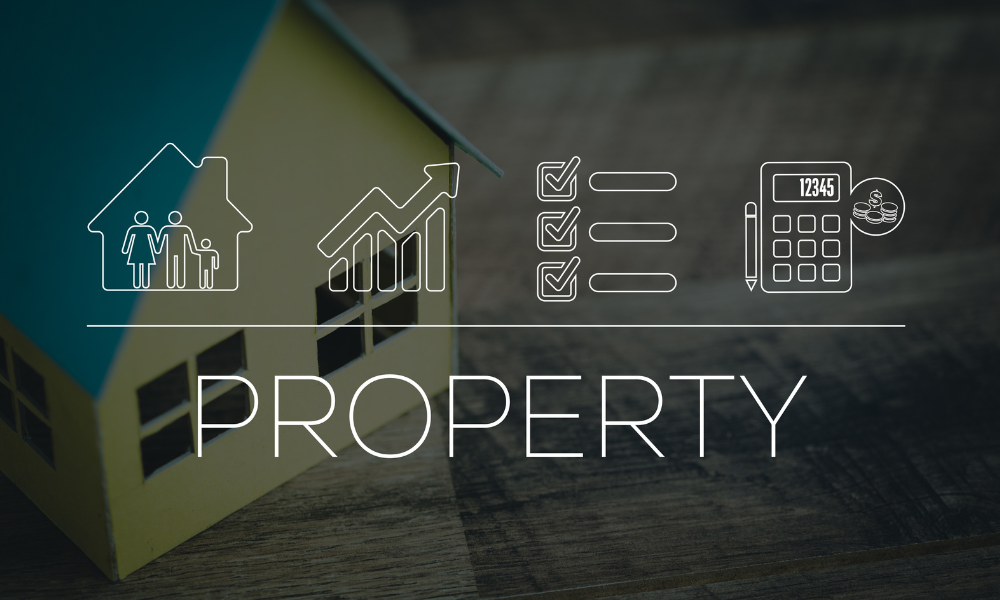A quick outline
So, you’re ready to dive into the world of real estate investing? Before you do, get to know your options for financing, because this is probably the biggest hurdle you’ll have to face. We’ll delve deeper into how to get a loan for investment property and what the loan types are, in our helpful guide below.
Key Topics
Investment properties are bought with the intention of making money through rental income or by reselling them. For those who are looking at investing in real estate, one of the first considerations you’ll be thinking about is financing. Getting the funds for an investment property is different to financing a home that you’ll be living in yourself, so investors should be aware of the options before they take the first step.
There are a variety of financing options for real estate investors to use for their property purchase and it can be difficult to decide, so we’ll cover these options, the lending criteria for each loan type, and more in our guide below on how to get a loan for investment property.
How do investment property loans work?
Investment property loans work similarly to conventional mortgages, if you’re purchasing a house that is within 1 to 4 units. The application and approval processes for investment property loans work the same way as primary residence mortgages do, except that the lending criteria are more stringent.
The difference with investment property loans lies in that fact that the interest rates tend to be a little higher than standard mortgages and the down payment is often between 15% and 20% of the total price. These loans typically require a credit score of over 700.
The investment property loan process goes something like this:
- Search for the right loan and get pre-approval
- Find an investment property and put in an offer
- Apply for the loan that you’d like, using the property deal
- Agree on the loan terms which include the interest rate
- Underwriting is done on the loan so that you can get funds
- Sign the agreement and close the deal, then get funds
The different types of investment property loans

Home Equity Loans
Tapping into the existing home equity that you’ve built up is a useful financing solution for buying an investment property. Home equity loans typically allow you to borrow up to 80% of a home’s equity, and they can be used for the purchase, repairs and renovations of the property.
You can either draw the funds in a lump sum as a home equity loan, or you have the option of taking a revolving line of credit in the form of a Home Equity Line Of Credit (HELOC). A home equity loan requires repayments in the same manner as a conventional loan, while a HELOC generally requires interest-only payments for a period, similar to a credit card. These can both be useful for different investing purposes.
Another type of home equity loan that you can take is a cash-out refinance. This means that you’ll extend your current mortgage, and this could also result in higher interest over time. However, this is still a viable financial solution for investment property purchases and can be quicker and easier than taking out a whole new loan.
Conventional Loans
If you have bought a home to live in, using a mortgage to finance it, then you’ll already be familiar with conventional loans. These loans need to abide by the rules set out by Fannie Mae and Freddie Mac, however they aren’t backed by the government and are instead provided by financial institutions such as banks. Conventional loans typically require about 30% of the home’s purchase price as a down payment on the loan.
Conventional loans place a high weighting on borrowers’ personal financial standing. A borrower’s personal credit history is taken into account as the main factor for determining the loan approval and the loan terms. This means that you’ll need to prove that you can afford the monthly repayments for the loan, which includes your income and assets. You cannot use any future income in this calculation as this will not be regarded as a factor in the calculation.
Hard Money Loans
These can be used for fix and flip properties, rental properties and ground-up construction projects. Hard money loans are easier to qualify for because hard money lenders place less importance on a borrower’s personal financial standing and more on the actual property deal itself. Loan approval is based on the property’s After-Repair Value (ARV) and the likelihood of the deal being successful.
Hard money loans enable fast funding for real estate investors, which helps them beat the competition and secure good investment property deals quickly. These loans can provide funding in just 7 days in some cases, with loan approval in just minutes. For fix and flip properties, hard money loans can be a good solution as they’re quick to get approval for and often you’ll only need to pay the interest on the loan, with a balloon payment at the end.
Hard money loans come at a higher price than some of the other options as their rates tend to be higher (anywhere between 6% and 12%). However, they’re also usually short-term loans that range between 6 months and 24 months. These loans may come with higher origination and closing costs than some other loans as well.

Rental Property Loans
There are a few types of loans that work well specifically for rental property investments, here are two:
- Blanket loans: These can be used to purchase a few rental properties under a single loan. Private lenders or mortgage brokers are able to find blanket loans for investors. The interest rates, down payments and length of the loan all depend on the lender, there’s no one-size-fits-all for these loans.
- Portfolio loans: These are mortgages taken by the same lender on single-family property or small multi-family properties. These lenders may offer investors a discount for taking a few loans with them. The loan terms can be more flexible and taken on a case-by-case basis, however there are often higher fees.
Private Loans
A private money lender is essentially a type of investor who provides loans to other investors. Private money lenders can be individuals or companies, and they use their own private funds to provide these loans. Which means that these loans have flexible loan terms, and the lending criteria depend entirely on the lender.
A private money lender provides the loan under an agreement which usually takes the form of a promissory note. This note will contain the terms of the agreement, such as the length of the loan, the loan amount, and the interest to be paid. The lender will typically get a lien on the property, which means that this can be used as collateral in the event of the borrower defaulting on their repayments.
Government-backed Loans
The Federal Housing Administration (FHA) and the Department of Veterans Affairs (VA) both provide specific government-backed loans for the purchase of properties.
The Department of Veterans Affairs provides loans for qualifying veterans, active service members, and their spouses. The advantages to these loans are that the qualifying criteria are flexible, and they offer lower rates with little to no down payment. While FHA loans are offered by traditional lenders and the income from rental properties can be used to get loan approval.
VA loans are available for veterans who are investing in multi-family properties that contain no more than 4 units and the veteran themselves need to take up primary residence in one of the units. FHA loans also have the same 4-unit maximum rule with one unit being occupied by the borrower. This condition is non-negotiable for both.
VA loans offer rates from 4.625% to 5.5% and borrowers can choose between fixed and adjustable mortgage loans, refinance loans, cash-out loans and jumbo loans.
Seller financing
A less common, but useful creative financing solution for investors who have a willing seller, is to use the seller financing method. This option involves the seller (who owns the property and has fully paid off the mortgage) providing the buyer with the funds they need to purchase the home. Essentially, the seller acts as a lender. The buyer will then pay the seller back over time, with interest.
This is a good option for investors who need to split their capital gains tax into a few amounts, instead of one big amount. A seller may very well still do credit checks and expect a down payment, and the interest rates will vary depending on the seller.

How do you raise money for a down payment?
For real estate investors, coming up with a down payment can be significant a hurdle in their journey because not everyone has the cash reserves on hand for this. Thankfully, there are a few options to consider:
Home equity
Taking out a HELOC on your existing property is one of the easiest ways to find the funds to cover a down payment on your next property purchase. The draw period on these is usually between 10 and 15 years, so this means that during this period the borrower will only be paying the interest. This gives investors enough money to cover a down payment and renovations, before making money back from the property.
Personal loans
Personal loans are another way to cover a down payment, however these come with high interest rates and fees. For borrowers who cannot get the funds, these can be a useful option. Loan amounts vary from lender to lender, as do loan terms and interest rates, so it’s important to check these and compare lenders before taking a personal loan.
Savings
If you’ve got a 401(k), you can consider using this for your down payment, provided that you can pay the money back within 60 days. If you can’t pay it back within this time, you’ll risk being taxed and penalized by the IRS. Typically, you can borrow up to $50,000 or half of your 401(k), depending which amount is lower.
If you have a self-directed IRA, this can also be used for a down payment, however it’s important to use both these options with caution. The trick here is to make sure the money is returned within 60 days as well, or face penalties.
Private loans
Enlisting the likes of friends and family to pitch in to cover the down payment is another option for investors. This way, there will be flexible terms and you’ll be able to work out a good deal with your private lender (whether that be someone you know or a company), so that you can pay them back once your project is complete or within a reasonable time frame.

Is rental income factored into the mortgage agreement?
When investors are trying to qualify for a mortgage, their income and assets are very important factors. The lender is ultimately assessing whether the borrower can pay off the loan in the given time frame, so that they can minimize their risk. So, any income is useful in this scenario.
If you’re buying a rental property, you can look at the rental history and use this to demonstrate that should it continue the same way, you’re looking at a certain amount of rental income as well. This rental income can be factored into your overall income, however, bear in mind that only a portion of it would be available to pay towards the mortgage as the rest will cover operating expenses.
Each lender will have their own criteria on how rental income can be factored in, so it’s worth adding this to your income list and checking with the lender.
What is the maximum length (in years) of an investment property loan?
30-year loans are generally the longest loans you can get for an investment property.
For second properties, these are the most common loans. There are a variety of mortgage loan lengths for investors such as 10, 15, 20 and 25 years. Outside of mortgage loans, there are investment property loans with other lenders, but these are typically shorter than 30 years.
What are the credit score requirements for an investment property loan?
The credit score requirements for investment property loans vary, depending on the lender and the loan type. A good number to work with is a minimum credit score of 700, however, the higher the credit score, the better your mortgage rates are likely to be. This score is applicable for most conventional loans where you can qualify for a 15% down payment. The except to this rule would be if your debt-to-income ratio is 35% or less. In this case your credit score can sometimes be 680.
However, if you’re applying for a loan from hard money lenders, for example, your credit score can be a bit lower. This is dependent on the lender’s criteria and on the quality of the investment property deal. Since the deal is the most important factor for hard money lenders, there is some leeway with credit scores.

How do the monthly mortgage payments work?
For an investment property, the monthly mortgage payments are calculated much the same as a regular mortgage, however, a down payment of 20% is usually required. The higher your down payment is, the lower your monthly repayment will be. The interest rates on investment property mortgages are about 1% higher than conventional mortgages, so this will impact your monthly payment.
For other loans, your monthly payments will vary, depending on the type of loan. Some loans have interest-only payment periods and then require a balloon payment at the end, and others require standard monthly payments.
Additional tips when applying for investment property loans
For real estate investors who are new to the field, or those who are trying out new loan types, it’s important to remember these extra tips:
- Make sure to get pre-approved for a loan before you begin searching for investment properties.
- Get your ducks in row when it comes to paperwork, you’ll need to prepare 2 years’ worth of tax returns, bank statements and W-2 to show that you can meet your monthly repayment obligations.
- The higher your credit score, the better. However, if your credit score is a little lower than optimal, but you’ve got a great investment property, consider using a hard money lender.

